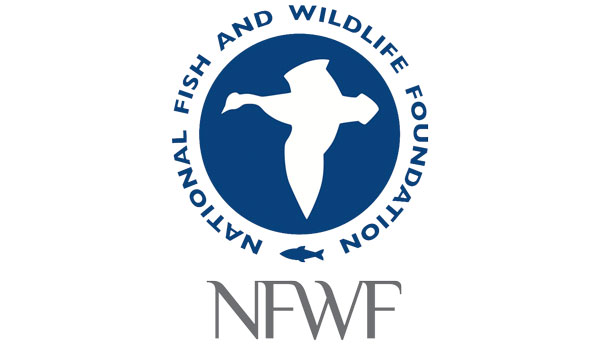
The National Fish and Wildlife Foundation (NFWF) yesterday announced 41 grant awards totaling nearly $11.5 million to clean up and restore polluted waters, enhance fish and wildlife habitat, and increase access to nature throughout the Delaware River watershed. Grantee organizations have committed more than $13.5 million in match, for a total conservation impact of about $25 million.
The grants were awarded through two programs administered by NFWF: the Delaware River Restoration Fund (DRRF), funded by the William Penn Foundation; and the Delaware Watershed Conservation Fund (DWCF), funded by the U.S. Fish and Wildlife Service.
“These 41 projects announced today will help ensure a healthier, cleaner, and more resilient future for the Delaware River watershed and the diverse species that depend on it,” said Jeff Trandahl, executive director and CEO of NFWF.
The awards announced today were granted to projects in Delaware, New Jersey, New York, and Pennsylvania. In total, the projects will improve more than 12,000 acres through enhanced management, treat polluted runoff using agricultural conservation practices on about 937 acres, restore 585 acres of wetlands, plant nearly 2,000 trees, and establish over 1,500 acres of new public access lands. The projects will help advance the goals of the Delaware River Watershed Initiative, NFWF’s Delaware Watershed Business Plan, and the Delaware River Basin Conservation Act. Grant awards include:
- (Delaware) $237,000 via the DWCF to National Wildlife Federation to implement “Sacred Grounds Program: Installing Pollinator Gardens and Engaging Communities of Faith”
- (Delaware) $179,500 to the New Castle Conservation District via the DWCF to implement “Dam Removal in the White Clay Creek”
- (New Jersey) $500,000 via the DWCF for the Upstream Alliance to engage the local community in “Developing a Water Trail and Recreational Programming in Camden”
- (New York) $75,000 to Catskill Mountainkeeper via the DWCF for “Protecting Eastern Brook Trout Habitat through Invasive Management in the Beaverkill Valley”
- (Pennsylvania) $255,000 through the DRRF to Berks Nature to improve water quality by “Implementing Agricultural Best Management Practices in the Middle Schuylkill Cluster”
“From coastal marshes to mountains, the Delaware River watershed encompasses diverse landscapes and communities,” said Wendi Weber, U.S. Fish and Wildlife Service’s North Atlantic-Appalachian Regional Director. “The projects and partnerships supported by these grants will conserve and sustain these lands and waters, as well as the people and wildlife who depend on them, for generations to come.”
The Delaware River Restoration Fund, launched in 2013, is administered in cooperation with the Delaware River Watershed Initiative — an NGO-driven partnership between leading conservation organizations to protect and restore water quality in the Delaware River watershed — with major funding provided by the William Penn Foundation.
“The Delaware River Watershed is an interconnected system that needs unified efforts to ensure its health and resilience,” said Stuart Clarke, Watershed Protection Program Director at the William Penn Foundation. “It is broad collaborations and partnerships like the Delaware River Restoration Fund that lead to success in land restoration efforts. We are pleased to support these smart, cooperative, and strategic projects to protect the watershed.”
The Delaware Watershed Conservation Fund, created in 2018, is funded by the U.S. Fish and Wildlife Service to achieve the goals of the Delaware River Basin Conservation Act. The Act guides and supports federal, state, regional, and local partners to collaboratively identify, prioritize, and implement habitat restoration and conservation activities within the watershed.
The Delaware River watershed covers 13,539 square miles of land and water, running from the Catskills in New York through Pennsylvania and New Jersey, ultimately emptying into the Delaware Bay. Despite its position in a major metropolitan corridor, the watershed is home to a remarkable variety of species and their habitats—from mountainside cold water streams to tidal salt marshes—that are economically, ecologically, and culturally important to the region. Urban and suburban waterways play a major role in the watershed’s communities, with headwaters in neighboring rural and agricultural areas. Grant projects are implemented across this variety of landscapes, serving to improve wildlife habitat and human communities, accelerate implementation of best practices, provide opportunities for people to engage with nature, and ultimately benefit water quality locally and for those downstream.
A full list of 2021 Delaware River Restoration Fund projects receiving grants is available here. See the full list of 2021 Delaware Watershed Conservation Fund grants here. See a list of quotes from elected officials about today’s grant announcement here. For more information about NFWF’s Delaware River efforts, please visit www.nfwf.org/delaware.
A humble homesteader based in an undisclosed location, Lars Drecker splits his time between tending his little slice of self-sustaining heaven, and bothering his neighbors to do his work for him. This is mainly the fault of a debilitating predilection for fishing, hunting, camping and all other things outdoors. When not engaged in any of the above activities, you can normally find him broken down on the side of the road, in some piece of junk he just “fixed-up.”

Randy says
Lot of money for little effect how much did you have to give to all the corrupt officials